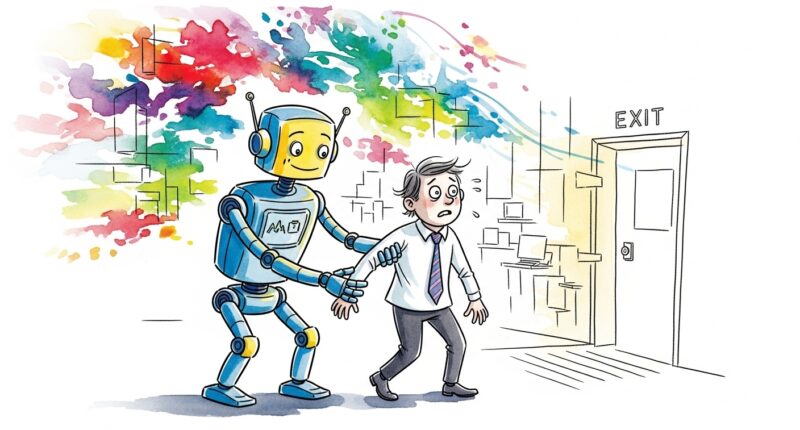Corporate giants, including Accenture, are cutting staff who aren’t embracing artificial intelligence fast enough, with the consulting firm’s chief executive announcing it is “exiting” employees who aren’t getting the hang of using AI at work, marking a shift from fears about being replaced by AI to being replaced by someone who knows AI.
The Wall Street Journal reports that the consulting firm has trained about 70 per cent of its roughly 779,000 employees in generative artificial intelligence fundamentals. However, employees for whom “reskilling, based on our experience, is not a viable path” will be let go, the company has said.
From professional services firms to technology companies, employers are encouraging their staff to learn about generative AI and integrate programmes like ChatGPT, Gemini, or custom company-specific tools into their work. Anyone deemed untrainable or seen as dragging their feet risks being weeded out of hiring processes, marked down in performance reviews or laid off.
Companies are warning their workers about the importance of their AI skills amid a wave of white-collar job cuts. Amazon announced layoffs last week that affected roughly 14,000 jobs, whilst Target recently shed 1,800 corporate roles. International Business Machines has also disclosed thousands of cuts, with executives at Amazon and IBM tying workforce cuts to the technology in statements this year.
ChatGPT ranks the results
At enterprise-software company IgniteTech, leaders required staff last year to devote 20 per cent of their workweek to experimenting with AI. Employees had to share on Slack and X what they were learning about AI, and staff self-assessed their AI usage. The company used ChatGPT to rank the results, and after a human review, IgniteTech cut the lowest-scoring performers.
“By their own admission, they’re in the basement,” said Eric Vaughan, CEO of IgniteTech. “So now they have to leave.”
One notable exit was that of the chief product officer, who had been with the company for years. Greg Coyle, that executive, said he had bought into AI’s potential to improve IgniteTech’s products and add new capabilities, but took issue with the nature of the widespread cuts, particularly because the technology is in such an early stage.
“Doing this rapid culling of your workforce, it’s very risky,” Coyle said. “If your AI plan doesn’t work out the way you expected it to, it’s a huge risk for the business.”
A recent Gallup survey found that more than 40 per cent of U.S. workers who don’t use AI say the main reason is that they don’t believe it can help their work. A smaller share, 11 per cent, said their primary driver was that they did not want to change how they worked.
At McKinsey, consultants will be evaluated on how they make decisions with AI in future performance reviews, according to reports. When assigning staff to client projects, McKinsey prioritises employees who are trained in AI. PwC is requiring AI training for its newest hires, launching a nine-part pilot curriculum for new-graduate associate hires in October.
LinkedIn job postings requiring AI literacy skills have expanded by 70 per cent in the 12 months ended in July, according to the site.











